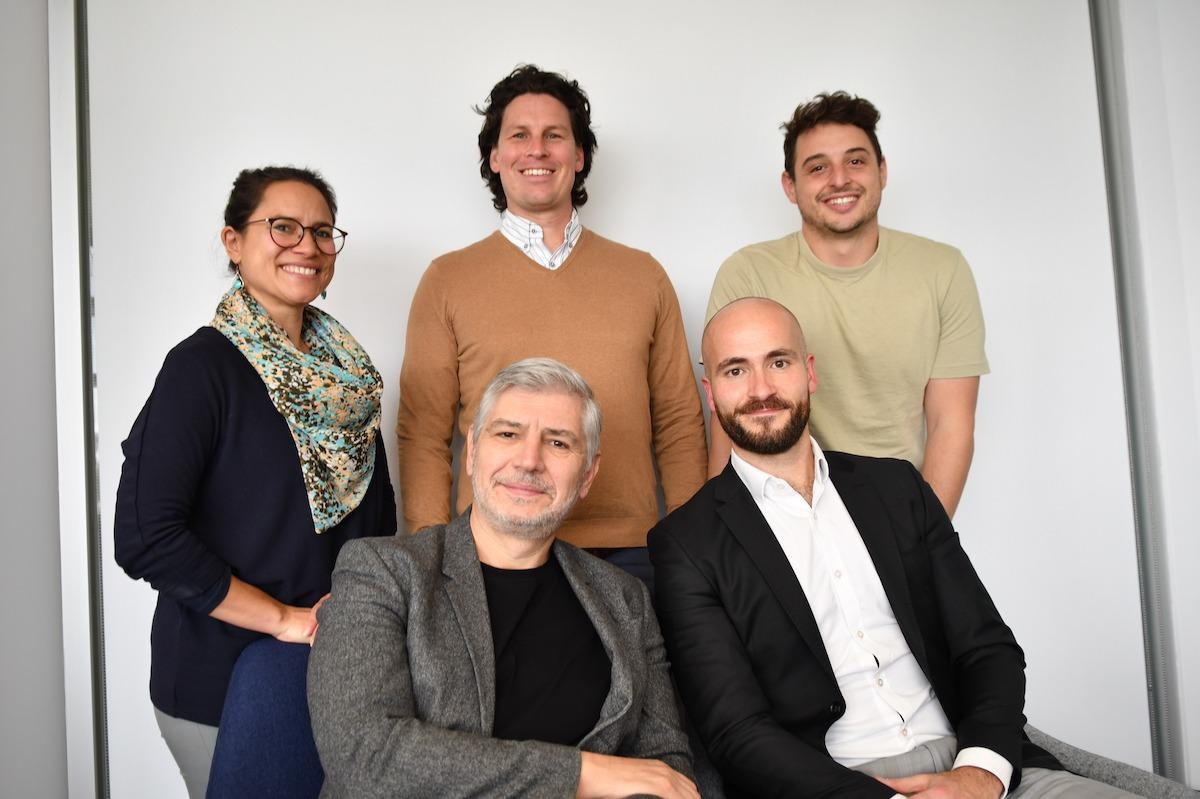Taking care of mental health and wellbeing has never been more important - with the ‘Be Well Plan’, a new guided five-week online program in Australia, proving an effective alternative to services under rising pandemic pressures, a new study shows.
 Flinders team members involved in the Be Well Plan: (back L-R) Kathina Ali, Dan Fassnacht and Matt Iasiello; (front) Mike Kyrios and Josep van Agteren. Image Credit: Flinders University
Flinders team members involved in the Be Well Plan: (back L-R) Kathina Ali, Dan Fassnacht and Matt Iasiello; (front) Mike Kyrios and Josep van Agteren. Image Credit: Flinders University
The latest rigorous assessment of the Be Well Plan, a live-facilitated online intervention developed by experts at Flinders University and the SA Health and Medical Research Institute (SAHMRI), has found the program offers significant benefits in improving participants’ mental wellbeing, resilience, anxiety and depression.
Business, community organisations and government organisations around Australia have already started training Be Well Plan facilitators, building capacity to reach millions of Australians who are currently struggling.
“The Be Well Plan program doesn’t target specific symptoms or target groups,” says Flinders Institute for Mental Health and Wellbeing Dr Dan Fassnacht, a co-author of the evaluation just published in JIMR Mental Health.
Participants who want to work on their mental health can experiment and tailor the content to their own needs, and actively find ways to make positive changes and develop better habits that work for them.”
Dr Dan Fassnacht, Flinders Institute for Mental Health and Wellbeing
About one in five Australians experience mental health problems at some stage of their lives, and experts are forecasting an increase in demand for support as a result of COVID-19 pandemic social isolation and other pressures.
The Be Well Plan can be delivered in-person or online and comes with a train-the-trainer framework, for which people can apply and become trained facilitators, thereby allowing for the program’s use across the community as a sustainable solution, researchers say.
The latest assessment of the program evaluates results from a randomised controlled trial of more than 200 university students in the midst of the COVID-19 pandemic, from August 2020 to July 2021.
Of the 49 intervention group participants who completed the postintervention assessment, 47 (95.9%) were either very satisfied (n=31, 66%) or satisfied (n=16, 34%).
The research suggests university students and other members of the public who access the free program can benefit from this evidence-based program, which encourages individuals to develop a tailored plan and take active steps to improve their mental health and prevent anxiety and depression.
“Students are a particularly vulnerable group who appreciate being offered the program and mentioned that it has made a huge difference to how they address the daily challenges of university life,” says Flinders University co-author of the published study, Dr Kathina Ali, who is an accredited Be Well Plan trainer.
“The study offers students and others the opportunity to gain more insights into their mental health and develop skills and strategies during challenging times.”
Source:
Journal reference:
Fassnacht, D.B., et al. (2022) A Group-Facilitated, Internet-Based Intervention to Promote Mental Health and Well-Being in a Vulnerable Population of University Students: Randomized Controlled Trial of the Be Well Plan Program. JIMR Mental Health. doi.org/10.2196/37292.